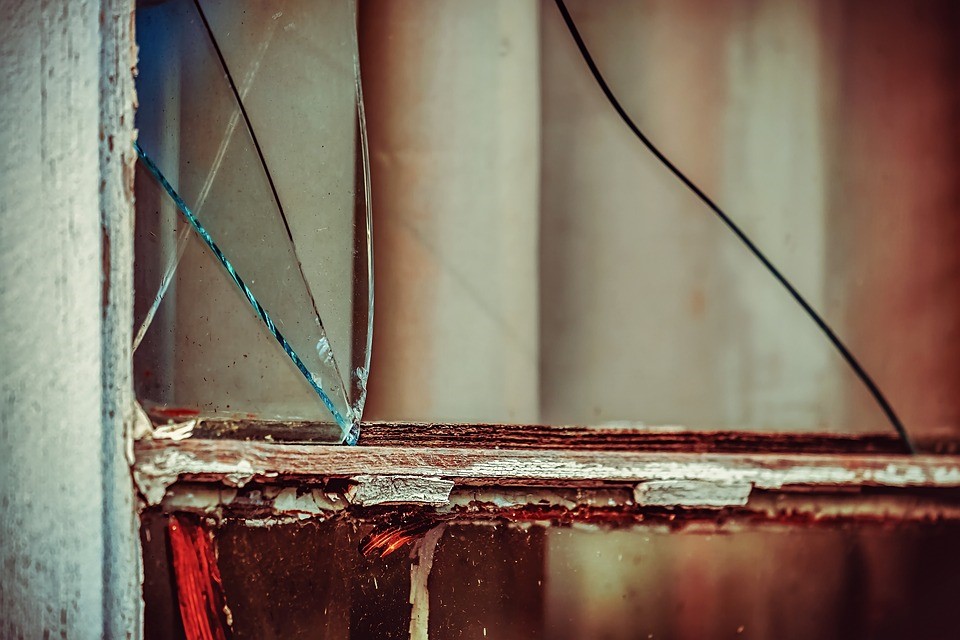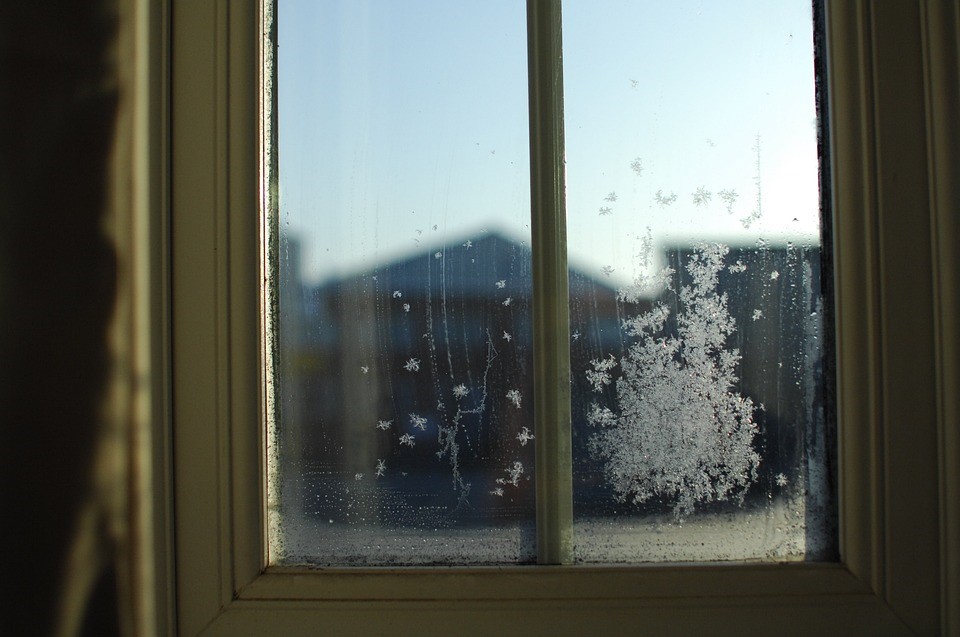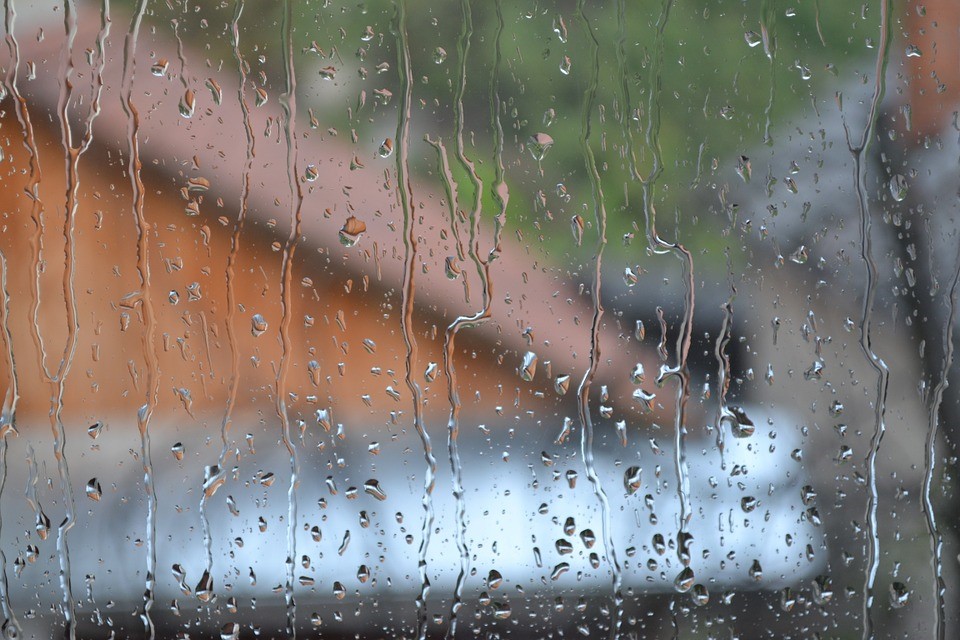The spring season is well-known for its wet weather and while there is the promise of May flowers to look forward to, this season can still be a huge hassle for homeowners. One such hassle are water leaks that can happen anywhere around the home – the roof, basement, foundation, windows, and doors. Houses are especially prone to water leaks during the rainy season because of an excess of rain.
The presence of water leaks in a home is a very serious problem, as it can lead to things like:
- Wood rot
- Structural damage
- Peeling paint and wallpaper
- The development of mould
- Pest invasions
- Flooding
Golden Windows is your go to local window and door company for quality products that are built to resist the elements and stand the test of time. We design, manufacture, and produce windows and doors from our facility in Kitchener, Ontario, and are experts in creating weather-proof and energy-efficient products that Canadians can count on.
As window and door experts, we are here to help you learn more about how to deal with leaky windows and sliding patio doors. Because sliding patio doors are similar to large sliding windows, much of what we will talk here will apply to them as well. Let’s take a look at the issue of leaky windows in your home and what you can do about it.
Types of Window Leaks
Window leaks can be either very obvious or not at all apparent. The ones that aren’t noticeable are the most dangerous, because they may have been present without you knowing for a while, left alone to cause damage.
Keep an eye out for these signs that you might be dealing with a leaky window:
- Wood rot on the exterior window frame/sill.
- Paint peeling or bubbling on the interior wall near a window.
- Paint peeling on the interior of a wooden window sill.
Structures made of wood are the most vulnerable to water as it can lead to rot. The wood becomes soft to the touch and may turn black or dark brown. The paint will also begin to peel and pieces of wood will begin to fall away.

If the paint begins to peel and bubble beside or near the window, then this could mean that water is getting into the wall which can potentially cause serious structural damage.
If you begin to notice any of the above signs, then it’s important you take action right away. Here are some more obvious signs that you should be able to spot relatively quickly.
Water Stains on the Frame and Sill
Though your walls can form water stains, the sill and bottom frame of the window will be the first place you begin to notice unsightly brown staining.
Often, this can be due to poorly done or old window sealant. When the caulking around the window becomes compromised, it can start to crack or peel away from the structure of the home. When this happens water is allowed to slip in.
Thankfully, a relatively inexpensive solution for this issue is to reapply the caulking. Damaged caulking around the exterior of the window needs to be cleared out first before replacing it with a new silicone caulking. This simple solution will ensure that moisture won’t get into cracks around the unit’s exterior. In addition, it will also prevent air leaks which will help keep heating and cooling costs lower during the winter and summer months.
If the problem is actually due to warped frames, or if the window unit is overly damaged, you will likely have to replace the whole thing. Take a look at our residential window FAQ to learn more about replacing your windows.
Water Stains on the Walls Around the Window
If you begin to see water stains or paint peeling/bubbling around the window unit, this might not actually be due to a window-related leak. In fact, the real cause of the issue could be due to damage to your home’s roofing, siding, or the wall itself, causing water to intrude near the window.
Unfortunately, it can be hard to tell if the problem is with the window or because of something else. Start by surveying both the inside and outside of your home and see if you can discover the source of the leak. If you do manage to find it, you should make the necessary repairs as soon as possible. But if you can’t find the source or are unsure, then it’s best to call a professional who can discover the source of leak for you.
Moisture on the Window Glass
Do you ever notice the glass on your window or sliding doors forming water droplets, as if they are sweating? Do they tend to fog up on occasion?
This occurrence is referred to as “window condensation” and many homeowners make the mistake of thinking that this is a problem with their windows. In fact, this actually has more to do with the humidity levels in your home. If there is excess moisture in the air, it will condense on cold surfaces like windows, producing the effect of water droplets or fog.
There are a number of things you can do to reduce humidity in your home and eliminate condensation. One solution to this problem is replacing your windows with ones that provide better insulation. For example, double- and triple-paned windows are ideal for reducing condensation since the inside glass is kept insulated from the cold air outside.
Condensation may look harmless, but it can actually cause mould to develop on the frame or nearby wall. So if you notice this occurring inside your home, then it’s best to take action before it’s too late.

Moisture Between Panes of Glass
Another area you may begin to see condensation is between the panes of the window glass. Energy efficient window units (such as the ones at Golden Windows) come with a gas filling between the panes in order to increase the energy efficiency of the unit. The gas is sealed within, but the seal can deteriorate over time or because of improper installation.
If the seal is compromised, then the gas can leak out and moisture can get in. You can try to remedy the situation by sealing the glass back into the gasket with caulking. Before starting, make sure the panes are dry and also that the sill is pitched to drain the water out and away from the home.
Thankfully, this condensation issue won’t cause harm to the inside of your home – not like if it were on the inside glass. Even so, homeowners may still want to get their windows replaced if they are concerned about energy efficiency.
Why Windows Leak
There could be a number of reasons why your windows are leaking (like the ones we already discussed above) and they are not always linked to the window itself. For example, your windows and their seals may be overexposed to the elements, shortening their lifespan and causing leaks. Adding gutters or rain spouts to the exterior of the home may help to direct water away from them and prevent any issues.
Another reason is because of general wear and tear. This is why window maintenance and care should be performed twice a year, once in the spring and once in the fall. It should also be done after a huge storm where there was lots of debris, wind, and precipitation. As a part of your regular maintenance, make sure to survey the overall quality of your windows – both inside and outside the home. Pay attention to the caulking and seals so you can make any repairs in advance before problems arise.
Here are other reasons why your windows may be leaking:
Issues with Window Flashing
Window flashing is a thin continuous material that is installed in a manner that directs water down and away from a structure, preventing water from getting in from an angle or joint near the windows. If you don’t have window flashing or if it was improperly installed, water that gets behind your siding can flow down your house wrap and into the opening where your windows are installed. These leaks are often found near the top of the window unit, though they can appear elsewhere.
Lack of Preventative Measures
The best way to prevent water intrusion is to keep water away from the window in the first place. That’s why many windows and doors have overhangs above them, and also why sills need to slope away from the window, instead of being flat or sloping inward. Inward sloping sills will direct water toward your window and wear it down until the frame begins to warp or other issues arise, which eventually can lead to water leaking inside. This can also happen if the fascia board above a window unit is angled inward.
Problems Caused by Leaky Windows
It’s already likely become clear that leaky windows can pose a serious issue to homeowners. If you allow water and moisture to build up inside your home, mould can begin to grow and your windows and walls can get severely damaged, requiring expensive repairs or replacement. Mould can seriously impact the health and well-being of you and your family, and is particularly bad for those with asthma or allergies.
Damage to the structural integrity of your home can present opportunities for pests to invade. This can mean anything from insects to rodents like mice that may carry diseases and that cause other issues.

What You Can Do About Water Leakage
Depending on the extent of the problem, a leaky window can be an easy, inexpensive fix, or you may need to do something a bit more drastic. That’s why educating yourself about leaky windows is important – not only can you work to prevent leaks but you can get a better idea about your options if one were to occur.
Start by inspecting your windows, both inside and out. If you notice damaged or cracking caulking, this can be easily replaced. Then take some time to inspect the outside of your home, looking out for cracks, broken siding, or holes. From there, you can make necessary repairs to stop water from getting in, or call in a professional to handle the problem for you.
It’s also worth taking a look at your gutters and eavestroughs to check and see if they are clogged or broken anywhere, as water can leak or start to pool up and drain into unwanted areas. Be sure to regularly clear these out or get them replaced if necessary.
Lastly, you’ll want to check your roof, as missing shingles or a failing roof system might be the reason water is making its way into the home. If you can’t do this yourself, it’s best to call in an expert to take a look.
Is It Time to Replace Your Windows?
Sometimes, the only solution is to buy new windows and replace the old ones that are damaged beyond repair. Old and damaged windows are harmful to the health and the well-being of both you and your home, and they can also cost you money due to lack of energy-efficiency.
New windows and sliding patio doors from Golden Windows can provide you with long-lasting units that will protect you and your home from the outside elements. They’ve been designed to resist our harsh Canadian weather conditions and have also been sealed to prevent water and air leaks. As ENERGY STAR® participants, we work hard to ensure that our windows and doors offer our customers maximum energy-efficiency, saving them money and improving the comfort levels in their homes.
We’re all about satisfying our customers, which is why we are currently offering a SAVE THE TAX sale on window replacement until April 30th, 2020. So if your old windows are in bad shape and need replacing, you should contact us soon – otherwise, you may miss out on this great opportunity.

